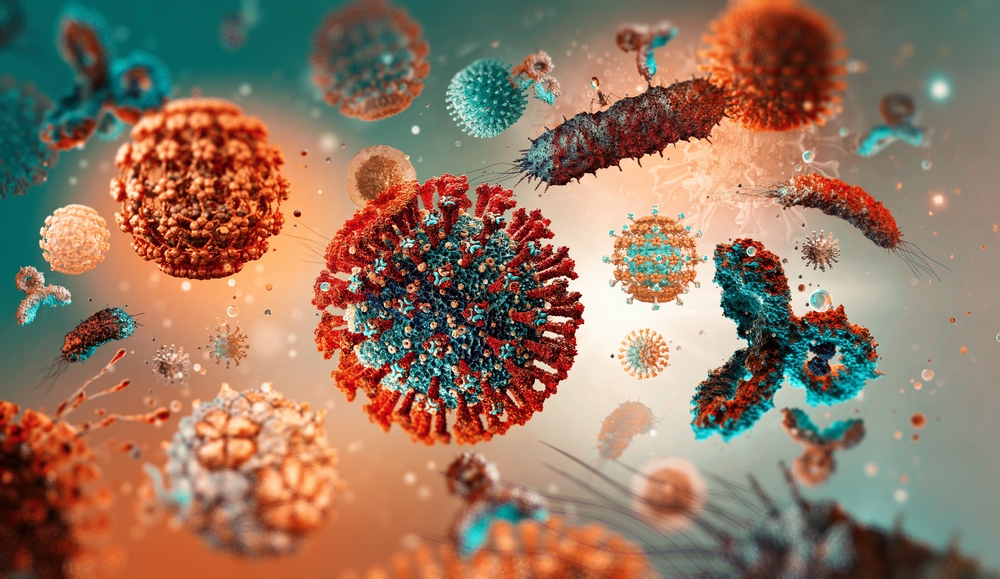Africa’s First HIV Remission Trial Offers New Hope: Women Successfully Control Virus Without Medication

For millions living with HIV, daily antiretroviral therapy (ART) has been a lifeline—but also a lifelong commitment. Now, a groundbreaking clinical trial in South Africa is challenging that reality, raising the possibility of controlling the virus without relying on daily medication. Led by Professor Thumbi Ndung’u at the Africa Health Research Institute (AHRI), this pioneering study represents more than just scientific progress—it’s a beacon of hope, particularly for women in regions like KwaZulu-Natal, where HIV rates are among the highest in the world.
Unlike traditional ART, which suppresses HIV indefinitely, this trial explores whether early, intensive treatment combined with immune-boosting therapies can train the body to keep the virus in check naturally. While similar research has been conducted elsewhere, this is the first major remission trial on African soil, where the need is greatest.
Remission is not yet a cure, but this trial marks a crucial step forward. It proves that the dream of long-term viral control is alive—and that the end of daily HIV treatment may one day be within reach.
A Bold Experiment in South Africa

In the heart of South Africa’s KwaZulu-Natal, one of the regions most heavily impacted by HIV, a bold new experiment is taking place. This Phase IIa trial, led by Professor Thumbi Ndung’u at the Africa Health Research Institute, is the first of its kind on African soil. For the 20 women who participated, it wasn’t just about being part of a scientific study—it was a chance to change the course of HIV treatment for future generations.
The trial combined two potent antibodies—VRC07-523LS and CAP256V2LS—with vesatolimod, an immune stimulant. The goal was simple but ambitious: to stimulate the immune system to take control of the virus, even after stopping antiretroviral therapy (ART). These women had already been on ART for at least a year before the trial began, so their virus was under control. But instead of continuing treatment, they were carefully monitored as they stopped taking ART and were given this experimental regimen.
The significance of this trial is profound. For years, we’ve focused on keeping the virus suppressed with ART, which, though lifesaving, requires people to take medication every single day. But what if, by awakening the body’s immune response, the need for ART could eventually fade? That’s the question this trial sought to answer—and the results so far have been promising.
A Glimpse of HIV Remission Becomes Reality

The results from this trial are nothing short of inspiring. While many of the participants had to restart ART after the virus began to rebound, a handful of women experienced something remarkable: they were able to control the virus without medication for extended periods. In fact, one participant has managed to maintain viral control for over 2.5 years after stopping treatment.
Think about that for a moment: someone living with HIV, not bound by the daily regimen of ART, controlling the virus naturally. It’s a glimpse into a future where HIV may no longer define someone’s life, where the virus is managed not by a pill, but by the body’s own immune system.
The broader picture here is that out of the 20 women involved in the study, about 20% were able to remain off ART for 12 to 55 weeks without the virus returning to detectable levels. While this is a long way from a cure, it’s a huge step forward. It shows that remission is possible—something that many once thought might be out of reach. And even for those who needed to resume treatment, this trial has given us invaluable insights into how HIV may be better controlled in the future.
In the words of Professor Ndung’u, “It’s not just about curing HIV for one person; it’s about making a global impact.” This trial is a reminder that even small victories can create ripples of change—ones that could eventually affect millions of lives.
A Strategic Strike Against the Virus

This trial’s revolutionary approach lies in its two-pronged attack on HIV—a virus that has long outsmarted conventional treatment. The key? A carefully designed combination therapy that transforms the immune system into a more effective HIV fighter.
The Breakthrough Treatment Combo
- Vesatolimod – An immune-stimulating drug that “wakes up” dormant HIV hiding in reservoirs (where standard ART can’t reach), flushing the virus into the open.
- Broadly Neutralizing Antibodies (bNAbs: VRC07-523LS & CAP256V2LS) – Engineered to target multiple HIV strains, these antibodies act like guided missiles, helping the immune system spot and destroy exposed virus particles.
HIV’s genius—and curse—is its ability to lie dormant in immune cells, creating an invisible reservoir that evades ART. This is why stopping treatment usually leads to viral rebound. But this trial’s strategy flips the script: by smoking HIV out of hiding and arming the immune system with bNAbs, the body gets a fighting chance to control the virus without daily drugs.

Remission vs. Cure: Why This Matters
- Not a cure – The virus isn’t eradicated; it’s kept in check.
- But a game-changer – For some, like the participant in 2.5-year remission, this could mean life without daily pills.
- A roadmap for future therapies – Even temporary success provides critical data to improve longer-term control.
As Professor Ndung’u notes, “We’re teaching the immune system to fight smarter.” While challenges remain—like why only some respond so well—this trial cracks open a door scientists have been pushing against for decades. The goal now? Turn these first steps into a lasting path toward remission for many more.
Science is rewriting HIV’s rules—from lifelong treatment to potential self-control. And that changes everything.
Why This Trial is a Game-Changer for Women

This trial’s impact goes beyond its scientific results—it holds particular significance for women, especially in sub-Saharan Africa, where they bear a disproportionate burden of HIV. In a region where HIV prevalence among women is alarmingly high, this study offers a glimmer of hope that things can change.
For too long, women have been underrepresented in clinical trials. This gap has led to a lack of understanding about how HIV therapies work for women, particularly those from resource-limited settings. The FRESH cohort in South Africa, which provided the participants for this trial, was specifically designed to address this issue. By focusing on women in one of the most affected areas, this trial is not only testing a new treatment approach but is also helping to reshape the way research is done.
In KwaZulu-Natal, young women face an HIV prevalence rate of nearly 60%, a reality that has deep socio-economic roots. From power imbalances in relationships to economic disparities, these women are at high risk of contracting the virus. The FRESH program, which provides these women with education and life skills, plays a key role in helping them navigate these challenges. The trial, therefore, represents a crucial step toward empowering these women—not just by offering a chance at HIV remission but by recognizing their unique needs and experiences in the fight against the virus.
By involving women in this way, the trial challenges long-standing gaps in HIV research. It underscores the importance of inclusive research that reflects the realities of those most affected by the epidemic. As Devi SenGupta of Gilead Sciences put it, “If we don’t include women, we miss the opportunity to understand how our drugs work for all populations.” This trial isn’t just a victory for science; it’s a victory for women everywhere who are striving to change the course of their lives.
The Resilience of the Research Team

Conducting clinical research is never easy. But when you’re doing it in a resource-limited setting—where political unrest, flooding, and even the COVID-19 pandemic threaten to derail your work—it takes something extra. It takes resilience.
The team behind this trial, led by Professor Thumbi Ndung’u, faced numerous challenges along the way. There were times when the clinic was almost destroyed by floods. At other points, the global pandemic forced the team to pause their work. Yet, through it all, they remained steadfast. They adapted, they innovated, and they made sure that their commitment to the participants—and to the larger goal of HIV research—never wavered.
The community that supported this trial is another key factor in its success. The researchers worked closely with the FRESH cohort participants, building trust over years of engagement. The women involved were not just clinical trial subjects; they were part of a community of care, with deep connections to the researchers and clinic staff. This trust and collaboration were vital for the trial’s success. The women were informed every step of the way, and they faced the demanding nature of the study with courage and determination.
This is a powerful reminder that the human element in research is just as important as the science. Without the community’s trust, without the researchers’ commitment to their work, this trial would not have been possible. As Professor Ndung’u said, “This kind of complex research can be done, but it requires collaboration between researchers, the community, and stakeholders.” It’s this collaborative spirit that will continue to drive the progress toward an HIV-free future.
A New Era of HIV Treatment on the Horizon
The research presented at the recent HIV/AIDS conference offers a renewed sense of hope in the ongoing quest for an HIV cure. The advancements in long-acting PrEP promise to revolutionize prevention efforts, but it is the progress in antibody research that holds the most tantalizing possibility of a future free from daily medication for people living with HIV. As Ole Schmeltz Søgaard aptly stated, “It’s not just one mechanism that’s maintaining control” against HIV after treatment is stopped.
He believes that the immune system remains the most promising avenue for achieving a cure, emphasizing the focus on “enhancing immunity” as the most promising path forward for the time being. While there is still much work to be done to understand the mechanisms at play fully and to develop broadly effective and accessible antibody-based therapies, these new findings represent a significant step forward on the long and challenging road toward an HIV cure, offering a glimmer of light and renewed optimism for the millions of people living with the virus worldwide. “This is not just about curing HIV for one person,” Dong said. “It’s about making a global impact, helping people across the world, and ensuring that the next generation of scientists, particularly from Africa, will lead the way.”
Featured Image Source: Shutterstock
Source:
- Evaluation of 2 broadly neutralizing antibodies plus vesatolimod in Early-Treated South African women with HIV-1 during analytical treatment interruption. (n.d.). https://www.natap.org/2025/CROI/croi_33.htm
Loading...






